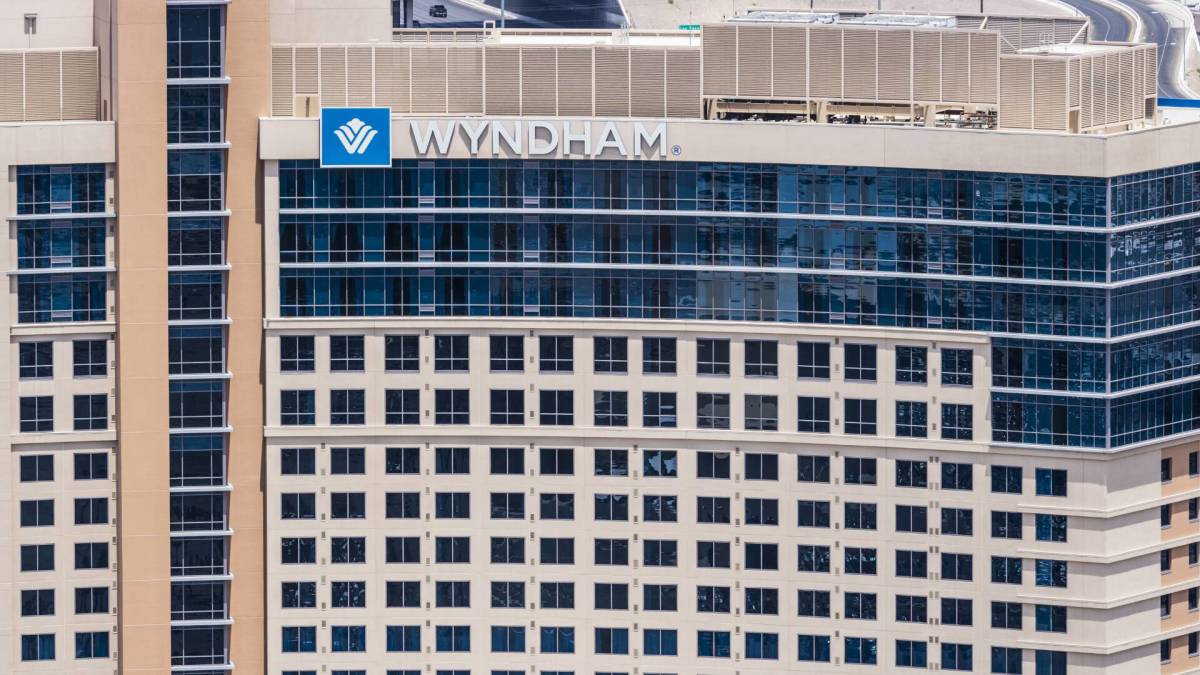Wyndham’s bold tech bet is paying off, boosting guest experience
Wyndham Hotels & Resorts Inc., one of the largest hotel chains in the U.S., was founded in 1981 in Dallas, Texas. It became a separate publicly traded entity on June 1, 2018, when it was spun off from Wyndham Worldwide Corporation (now known as Travel + Leisure Co.). Over the years, it ...

Wyndham Hotels & Resorts Inc., one of the largest hotel chains in the U.S., was founded in 1981 in Dallas, Texas. It became a separate publicly traded entity on June 1, 2018, when it was spun off from Wyndham Worldwide Corporation (now known as Travel + Leisure Co.).
Over the years, it has expanded significantly and now claims to be the world’s largest hotel franchisor. According to its investor presentation from October 23, 2025, the hotel operates 8,300 hotels across 100 countries.
It has 25 brands including:
- Super 8
- Days Inn
- Ramada
- La Quinta
- Howard Johnson
- Travelodge
- AmericInn
- Baymont
- Wingate
In Q1 2025, Wyndham reported global openings of around 15,000 rooms, marking a 13% year-over-year increase, and a record first quarter.
In May 2025, the hotel giant unveiled new initiatives to drive success and strengthen hotel performance, including Wyndham Connect PLUS to enhance Wyndham's existing guest engagement platform by further embedding AI across the guest journey.
Several months later, Wyndham provided an update on its AI programs. Jonathan Weiss/Shutterstock.com
Wyndham deploys 230 AI agents serving more than half a million customers
During the Q3 2025 earnings call, Wyndham CEO Geoffrey Ballotti talked about the hotel’s new AI strategy.
Ballotti shared that, in the third quarter: “230 AI agents with encyclopedic knowledge on each of our 8,300 hotels began leveraging the power of Salesforce, Oracle and Canary Technologies to generate and modify direct bookings while also answering questions and providing tailored travel recommendations by utilizing large language model AI and first in industry, Agentic AI voice assistants.”
He added that these new Wyndham AI Agentic assistants are providing full conversations and complete quest service support, while also managing live messaging via WhatsApp and Apple messaging.
Key takeaways about AI assistant programs:
- AI assistants handled 500,000+ customer interactions.
- Achieved around 25% reduction in average handle time.
- Delivered 300 basis points of improvement in direct contribution for hotels that have adopted it fully.
- Adoption is still in its early stages, as only about 7% of the hotel portfolio currently implements it.
Ballotti explained that its AI agents have comprehensive knowledge of all 8,300 hotels and can answer any question while seamlessly booking rooms.
“And that’s what is driving direct booking,” he said. “We're taking labor-intense tasks away from our franchisees. We're allowing them to make extra money by seamlessly selling an early check-in, early check-out.”
Other hospitality giants, including Marriott and Hilton, have also deployed AI technologies, seeking to drive value, reported CX Dive.
Wyndham Q3 2025 financial results
At the end of October, Wyndham posted its third-quarter financial results, sparking “a negative market reaction, as revenue fell below expectations and RevPAR (revenue per available room) continued to decline,” reported Yahoo Finance.
Highlights from Wyndham’s Q3 report:
- Revenue: $382 million, versus analyst estimates of $401 million
- Adjusted EPS: $1.46, versus analyst estimates of $1.43
- Adjusted EBITDA: $213 million, versus analyst estimates of $210.6 million
- RevPAR: $50.05 at quarter end, down 4.8% year over year
“Net revenues for the nine months ended September 30, 2025 increased $28 million, or 3%, compared to the prior year period, primarily driven by $29 million of higher ancillary revenues due to growth in our co-branded credit card program, as well as a larger global system and expansion in our domestic and international royalty rates, partially offset by lower global RevPAR” the company noted in its 10-Q filing.
Regarding the 5% drop in RevPAR, Ballotti said it reflects continued consumer caution amid an uncertain economic climate.
Despite that, a dose of optimism brought the growth of its “ancillary revenues,” which were up 18% year over year. These revenues include income from licensing, including branded credit and debit cards, reports Top Hotels Projects.
When asked if there’s something structurally wrong with the economy segment, given the recent concerning RevPAR trends, Ballotti replied:
“We are seeing nothing structural that concerns us,” adding that occupancy is down across all chain scales. “Occupancy, as we all know, has not recovered to pre-COVID levels in any segment, but it has more so in economy and midscale.”
“Luxury is the only segment that’s been able to outpace inflation growth, which is very good news for the economy and midscale segments from a long-term pricing power standpoint,” Ballotti pointed out.
He confirmed that the company needs RevPAR to rebound, but said, “We’re feeling very good about our net rooms growth outlook accelerating in our higher-fee segments.”
Related: Another regional airline abruptly shuts down, cancels all flights
What's Your Reaction?




















































